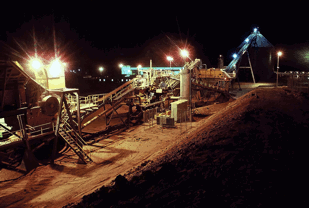If one compares maintenance to the human body, maintenance planning provides the thinking capacity that determines what work to do, and when, while the artisans provide the doing capacity of the hands and feet, and supervisors provide the controlling function of the brain, steering the hands and feet.
 Because nothing in life takes place before it has been thought through, no worthwhile maintenance task can take place before planning (naturally including any planning done by supervisors and artisans).
Because nothing in life takes place before it has been thought through, no worthwhile maintenance task can take place before planning (naturally including any planning done by supervisors and artisans).
 No worthwhile maintenance task can take place without good planning
No worthwhile maintenance task can take place without good planning
Maintenance planning fulfils a crucial role in the organisation. Maintenance success is absolutely dependent on good scheduling of maintenance work, proper task planning, and timely procurement of parts and materials. The Maintenance Planner plays a critical role in achieving this essential outcome.
The course thus has as its purpose to prepare Maintenance Planners for this role. This includes training in the various scheduling techniques, such as simple time slot scheduling, detailed network scheduling of maintenance shutdowns and projects, as well as batch workshop scheduling. It also includes training in task planning methods, procurement methods, use of maintenance systems, task flow optimisation, maintenance information analysis, and the support of maintenance management through well defined and formatted reporting.
The course is extremely hands-on, allowing candidates to practice the skills learnt through practical application during four to five group assignments per day. This is augmented by an application project following course completion.
Course Content
|
Module 1
|
Module 2
|
Module 3
|
|
Module 4
|
Module 5
|
|
Credits 16*, level 5** * The course comprises 80 hours of study, of which 40 hours are in class, with a further 16 hours of private study, and 24 hours for the assignment. **Occupational Certificate level |
|
Who Should Attend
The course is intended for maintenance planners, maintenance supervisors, artisans and those who manage them.
The reason for including the wording 'those who manages them' in the sentence above is that we often find that some class of Asset Management / Maintenance people are sent on courses without the person managing them being able to activate their newly acquired knowledge after the course. What rather happens is that they are managed exactly in the same way as before the course, which often leads to the course not having the required effect.
Artisans are also specifically added above as the effect of maintenance planning and the information fed back to the Computerised Maintenance System is to a large extent dependent on their knowledgeability of, and support to, the Maintenance Planning function.


